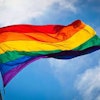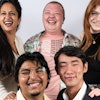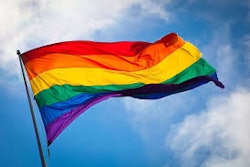Since his undergraduate years as a trans person at a women’s college, there have been many steps forward for collegians who aren’t heterosexual but also some jolts in the opposite direction, Gabriel Hall said.
In fall 2020 — ahead of a 2021 surge in new anti-lesbian, -gay, -bisexual, -transgender and -queer state laws — Hall began working as Mount Holyoke College’s first-ever administrator of its new LGBTQ initiative.
“We have a lot of students who are hurting right now,” Hall says. “The particulars of this moment, of not being on campus or physically in community, make all of this even more of a challenge. It’s hard to fully support one another through Zoom.”
Still, “we’ve had a lot of students ask, ‘What can we do, how can we be supported and supportive,’” even from their respective remote locations, he says. “They are living in different states. While Massachusetts has a progressive political climate, some students are back home living in states where that isn’t the case.”
Some LGBTQ students are likely feeling especially under siege right now. According to the Human Rights Campaign, 15 anti-LGBTQ laws regarding access to healthcare, bathrooms and certain types of education have been approved in eight states since January. Additionally, 11 more similar laws are awaiting a governor’s signature. It triggers a kind of trauma, observers say, that LGBTQ students do bring with them to campuses that may or may not have special programs to shepherd and shield LGBTQ students from the laws of their states.
The Consortium for Higher Education LGBT Resource Professionals, founded in 1977, lists 259 member campuses on its website. There are 4,360 academic degree-granting institutions in the United States, according to the latest available data from the National Center for Education Statistics.
Jorge Castillo says he was drawn to work at Syracuse University, in part, because he’d be more immersed in what he sees as critical work at a rarefied time, especially as full-time director of the university’s LGBTQ student resource center. Previously, as the assistant director for the LGBTQ+ center at West Virginia University, he doubled as a professor who also oversaw an LGBTQ studies minor.














